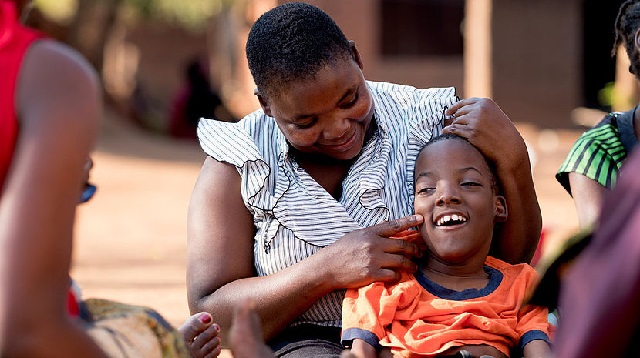
COMMENT | CINDY RUGUNDA & DOROTHY K MUSIMENTA | As the world commemorates the International Day of Education January 24th, a sobering reality lurks beneath the celebratory surface. While schools welcome students back for a new term, thousands of children with severe intellectual disabilities remain isolated, their learning needs unmet by a system designed for a different kind of mind.
Multiple disabilities that prevent normal human development place a reminder that some of our kids consequently have a learning disability and need a little extra help in school. Others may do well in school but have sensory or social issues that affect their comfort level and interactions in certain environments.
Most of the resources available seem to concentrate on these types of disabilities.
However, a child with severe disability that is Intellectual, mostly will need different supervision which is harder to find in most of the cases.
Of all the types of disability, a child with a severe intellectual disability is one to worry about, he requires a very different learning progression than a typical student. Their instruction may look very unlike from their peers’ schooling, and much of the general information delivered, may not apply.
Parents need to notice that rays of hope are available, they are not alone. There are lots of people and programs that can help, there are solutions everywhere, and we only need to focus and find them.
Never let anybody tell you that your child can’t learn. Children with an intellectual disability can learn new skills as well. They just need very specialised and focused teaching, although their steps to improvement may be smaller and take a little more time.
Because of the wide diversity in abilities and disability exhibited by children with multiple disabilities, their instructional needs typically cannot be fully addressed by our general education curriculum singly. Educational squads must labour collectively to develop a meaningful and customised curriculum for each case.
Customisation requires the best fit of content and sequence with the child’s current needs and abilities. Meaningful, on the other hand, requires consideration of what content is most relevant to the child and family’s interests, personal goals and limitations in reaching those goals.
Customised learning requires a specialised classroom where they can get more personal attention from trained special education teachers and carers in the least Restrictive Environment. They do need to be in a different environment so they have more intense support. They may need help learning basic self-care skills like dressing, toileting, eating, or speech therapy to learn how to use a communication device.
Special note to the parents walking this journey; Caring for a child who needs a lot of support can be a rich and fulfilling experience. But it can also be challenging and stressful.
When your child is very different from others their age, it can also be isolating and emotionally draining. It’s mind-blowing to see many other families with kids who can ably do things that your child can’t. So, you may need to resolutely focus on making contacts and be open and gratified about who your child is.
But it’s a journey you don’t have to walk alone, there are;
- Trained caregivers who if hired stay with the children to give the parent or main caregiver a break. They watch and attend to your child professionally contingent on a tailored program that suits the child’s and parents’ interests.
- Such measures if adopted would let the parent take a break that is much needed. You do not have to do everything possible all at once by yourself. It’s ok to relax.
- Look into Institutional care with home-away-from-home care services available to give you a bit of time off. Such care homes contain a regiment of professionals who will attend to the diverse special needs of the child with all the sophistication the task deserves.
- The Care Homes established support groups comprising other parents and children with similar severe disabilities from whom one can get useful engagements and advice that is therapeutic.
Caring for a child with severe disabilities may require more support, but once you set it up, you can spend more of your energy loving and enjoying it.
There is a lot of compassion and understanding floating around in such care homes. Building a community of support around your child and your family can be of immense help. Tap into it and Best of Luck.
*****
The Writers are advocates of Institutional Care for Children with Special Needs at PRICELESS CHARITIES UG LTD
 The Independent Uganda: You get the Truth we Pay the Price
The Independent Uganda: You get the Truth we Pay the Price



